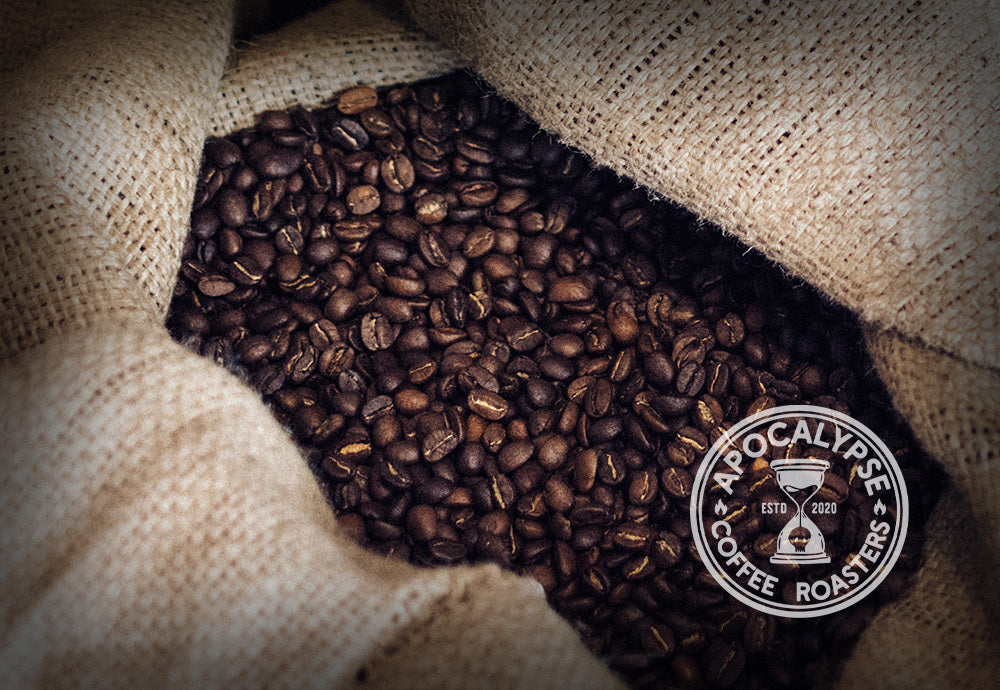Exploring Rich Coffee Regions From Around The World
The term "single origin" has become synonymous with high quality, authenticity, and a sense of belonging. Coffee aficionados are increasingly seeking out single-origin organic coffees; not only for their superior taste but also for their positive impact on the environment and communities involved. In this blog post, we'll examine the world of single-origin coffee; focusing on the sourcing process and the benefits it brings. Let us take you on a journey to explore the coffee production in the enchanting regions of Bali, Colombia, Costa Rica, Ethiopia, Guatemala and Honduras.
How It Starts
Sourcing - heart of the single-origin coffee movement. Unlike blends that combine beans from various regions and even countries, single-origin coffee is made from beans that come from a single geographic location. This simple but powerful geographic choice allows coffee connoisseurs to taste and appreciate the unique flavors and characteristics inherent to each region.
When it comes to organic coffee, the sourcing process is even more critical. Organic coffee is grown without the use of synthetic pesticides or fertilizers. Instead, it relies on natural farming methods that prioritize soil health, biodiversity, and sustainability. Organic farming not only benefits your health but also produces coffee beans with a cleaner and more distinct flavor profile. Apocalypse Coffee Roasters is Organic Only!
Why Single Origin Coffee
Choosing single origin coffee offers a multitude of benefits beyond the exquisite flavors:
Flavor Diversity:
From earthy vibrancy, offering a smooth, full-bodied taste with hints of cocoa, spices, and tropical fruits to clean, bright profiles with refreshing citrus and floral notes. Each region imparts its own unique flavor coffee profile. Together, these coffee regions offer a remarkable tapestry of flavors that cater to a wide range of palates and provide coffee connoisseurs with a captivating array of taste experiences to explore.
Sustainable Farming:
Organic coffee farming practices promote sustainability, protecting the environment and ensuring fair wages for coffee farmers.
Supporting Local Communities:
Purchasing single-origin organic coffee often means supporting small-scale farmers and their communities, contributing to a more equitable coffee industry.
Preservation of Biodiversity:
Many organic coffee farms employ shade-grown practices, preserving natural ecosystems and providing habitats for wildlife.
Healthier for You:
Organic coffee is grown without synthetic pesticides and fertilizers, making it a healthier and more environmentally conscious choice.
Where's The Flavor
Bali: A Tropical Paradise for Coffee Lovers
Bali, the Indonesian island known for its lush landscapes, is a relatively new but exciting player in the single origin coffee scene. With its volcanic soils and unique growing conditions, Bali produces beans with distinct flavors, often described as earthy and vibrant. Balinese coffee is celebrated for its smooth, full-bodied taste with hints of cocoa, spices, and tropical fruits. Organic farming in Bali aligns with the island's commitment to eco-friendliness and sustainability.
Colombia: Where Diversity Flourishes
Colombia, with its rich diverse geography and varied microclimates, is a paradise for coffee enthusiasts. Coffee farms in regions like Huila and Nariño benefit from high altitudes, volcanic soils, and abundant rainfall. These factors combine to create an ideal environment for Arabica beans to flourish. Colombian coffee is celebrated for its medium to full-bodied flavor with bright acidity and notes of caramel, chocolate, citrus, and nuts. Many Colombian coffee farms prioritize organic and sustainable practices, preserving their pristine landscapes for generations to come.
Fun Fact: Columbia is known as the "Land of a Thousand Rhythms."
Costa Rica: Quality Meets Sustainability
Costa Rica, nestled in Central America, is renowned for its commitment to both coffee quality and sustainability. Coffee produced in regions like Tarrazú and Naranjo benefits from the country's lush rainforests and well-structured coffee cooperatives. Costa Rican coffee boasts a clean, bright taste with citrus and floral notes, often accompanied by a crisp honey-like sweetness. The country's commitment to sustainable organic farming practices ensures the protection of Costa Rica's pristine environment.
Ethiopia: The Birthplace of Coffee
Ethiopia, often considered the birthplace of coffee, offers an unparalleled coffee experience. Coffee cherries grow in lush, high-altitude regions like Sidamo and Yirgacheffe. Ethiopian coffee is renowned for its complex and diverse flavor profiles, ranging from fruity and floral to earthy and spicy. Organic farming methods in Ethiopia honor the heritage of coffee while preserving its unique terroir.
Guatemala: A Tapestry of Flavor
Guatemalan coffee offers a sensory journey that's as rich as the country's landscapes. Its volcanic soil, varying altitudes, and unique microclimates make it an ideal region for growing coffee. Depending on the specific region, you can expect to find coffee with notes of chocolate, nutmeg, floral undertones, and even hints of tropical fruits. The medium to full-bodied brew is often characterized by a balanced acidity that complements its sweetness.
Honduras: The Hidden Gem
Honduras is emerging as a rising star in the world of single origin organic coffee. The country's diverse topography, featuring mountains and tropical climates, contributes to the variety of flavors found in its coffee. Honduran coffee is often described as balanced, with medium acidity and a pleasing sweetness. By embracing organic farming methods, Honduran coffee growers champion both environmental stewardship and fair practices for coffee laborers.
The Art of Processing
The journey from coffee cherry to aromatic coffee beans involves several crucial steps, each influencing the final flavor and quality of the brew. Organic coffee farmers in these regions take great care in their processing methods, enhancing the overall coffee experience:
Harvesting:
Coffee cherries are meticulously hand-picked at peak ripeness, ensuring only the finest cherries are selected for processing.
Washing and Drying:
Following harvest, the beans undergo a meticulous washing process to remove the outer pulp. Depending on the region, some beans are dried in the sun, while others may be mechanically dried. This step plays a pivotal role in achieving the optimal moisture level for the beans.
Milling and Grading:
Once dried, the beans are hulled to remove any remaining layers, sorted by size, and graded based on their quality. This meticulous grading maintains the integrity of the coffee's flavor profile.
Leave With This
In the world of coffee, single origin organic beans are an embodiment of quality, sustainability, and uniqueness. Bali, Colombia, Costa Rica, Ethiopia, Guatemala, and Honduras exemplify the beauty of single origin coffee, each region offering its own distinct characteristics and benefits. By choosing single origin organic coffee, you not only elevate your coffee experience but also support the preservation of the environments and communities that make these beans possible. So, the next time you sip your cup of single-origin organic coffee, savor not just the taste but also the stories of the people and places behind it.








